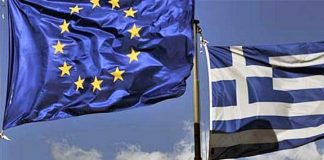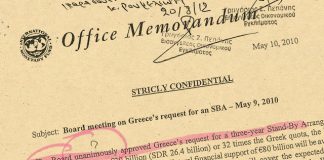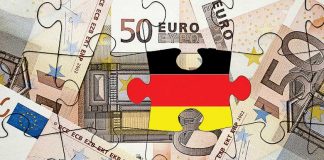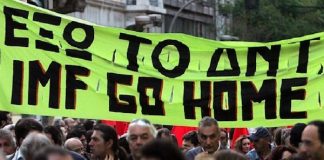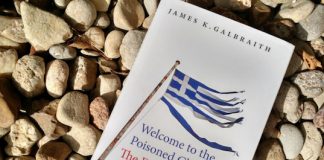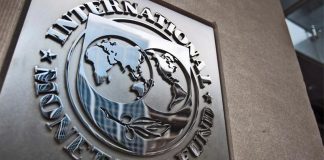IMF
Grèce : « allègement » en trompe-l’œil
Par Michel Husson *
En août 2015, quelques semaines après le non au référendum, le gouvernement grec signe le troisième accord (MOU, Memorandum of Understanding)...
IMF – The secret documents, or how they destroyed Greeks and...
The CADTM draws attention to two IMF documents dating from March and May 2010 that were kept secret. These authentic documents were placed at the disposal...
They keep lying while they argue about how to proceed with...
IMF is arguing for restructuring the Greek debt, which it recognizes as "highly non sustainable".
It contributed largely itself to this result by organizing "Bail...
Ιceland, Banks and Pirates
celand recently held new elections following the resignation of its Prime Minister due to the Panama Papers. In an interview with the activist Árni Daníel Júlíussson, the Lexit Network gathered updated information on the current situation in Iceland. We spoke also about the crisis, crisis policies, social movements in Iceland, the Euro and the question of EU-Membership.
The danger of Germany’s current account surpluses
Through the prism of the trade balance, the current account surplus can be viewed as a symptom of Germany’s economic success. German exports increased from 30% of GDP in 2000 to 47% in 2015. But with imports at merely 39% of GDP, this implies that Germany is providing capital to the rest of the world at a very high rate. Indeed, German savings have
Bolivia Asserts Newfound Economic Independence, Rejects Rothschild Banks
The International Monetary Fund (IMF) and US-dominated World Bank have been major players in the global economic landscape ever since their creation in 1944.These international banking organizations, which are privately controlled by the notorious Rothschild banking family, first pressure nations to deregulate their financial sector, allowing private
IMF explaining its own contribution in destroying South Europe
The Independent Evaluation Office (IEO) of the IMF recently published its report on the response of the organization to the European crisis. The analysis focuses on the performance of the IMF in the context of the programs for Greece, Portugal and Ireland. It provides a valuable insight into the conflicts within the IMF itself, and especially between the executive board of the organization and its management and staff.
Review of James Galbraith, Welcome to the Poisoned Chalice (2016) |...
Galbraith’s articles and interviews collected in this book (ending in October 2015) traces his growing exasperation at the “troika” – the European Central Bank (ECB), IMF and EU bureaucracy – which refused to loosen their demand that Greece impoverish its economy to a degree worse than the Great Depression. The fight against Greece was, in a nutshell, a rejection of parliamentary democracy after the incoming Syriza coalition of left-wing parties won election in January 2015 on a platform of resisting austerity and privatization.
Rogoff on China, IMF predictions and central Banks
The biggest threat to the global economy is not Brexit, but an impending crash in China, according to one of the world’s most eminent economists. Speaking to the BBC, Harvard professor, Ken Rogoff warned that China was facing a “pretty sharp landing already” after years of rapid economic growth. The real picture is much worse than the official one
IMF admits its responsibility in immolating Greece – and it wants...
The International Monetary Fund’s top staff misled their own board, made a series of calamitous misjudgments in Greece, became euphoric cheerleaders for the euro project, ignored warning signs of impending crisis, and collectively failed to grasp an elemental concept of currency theory.
